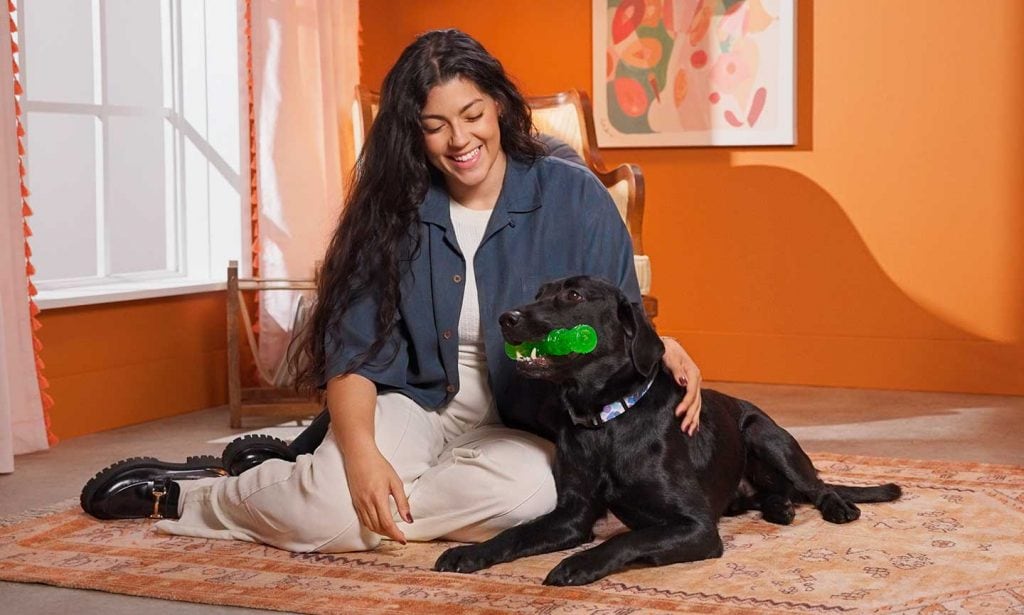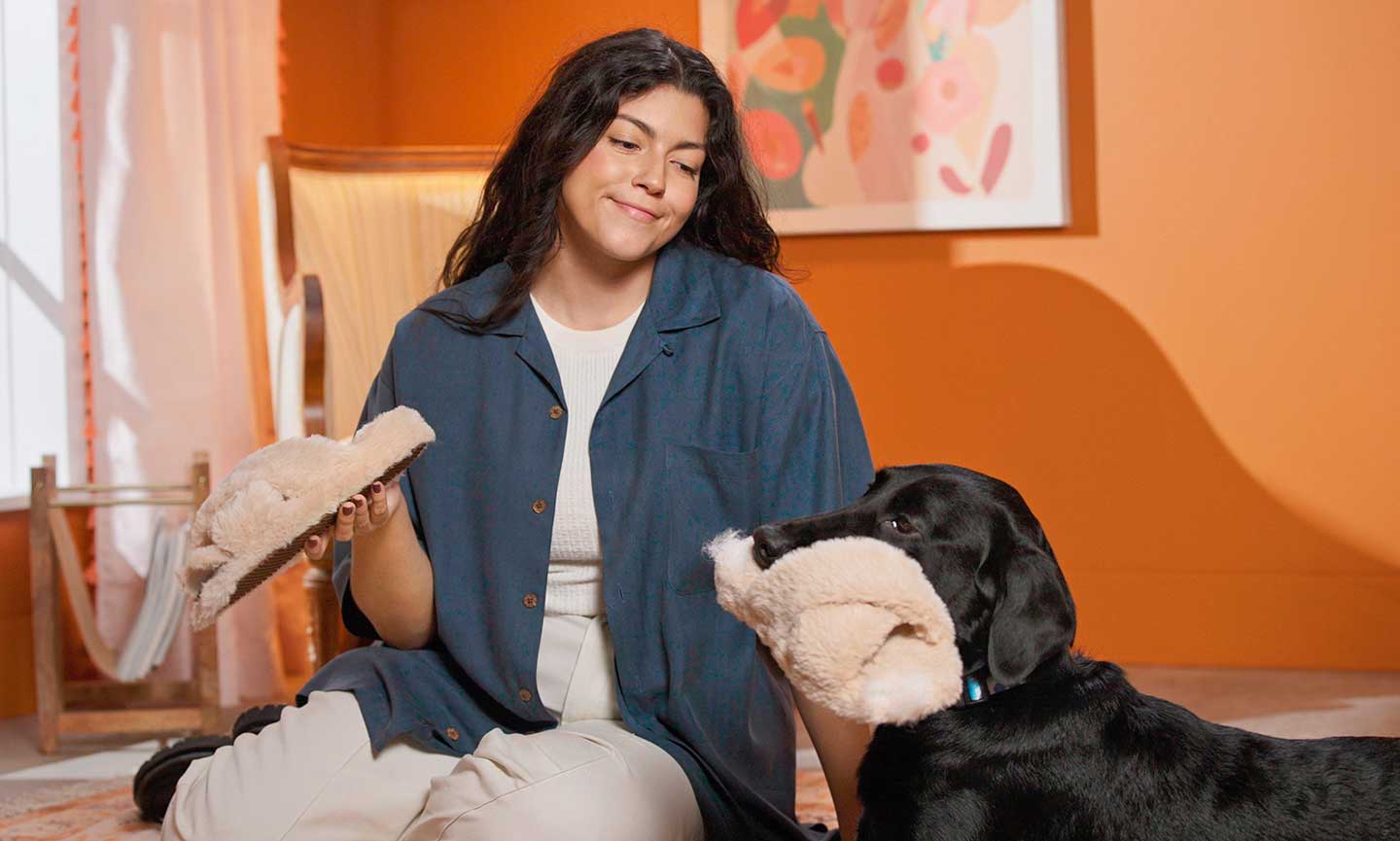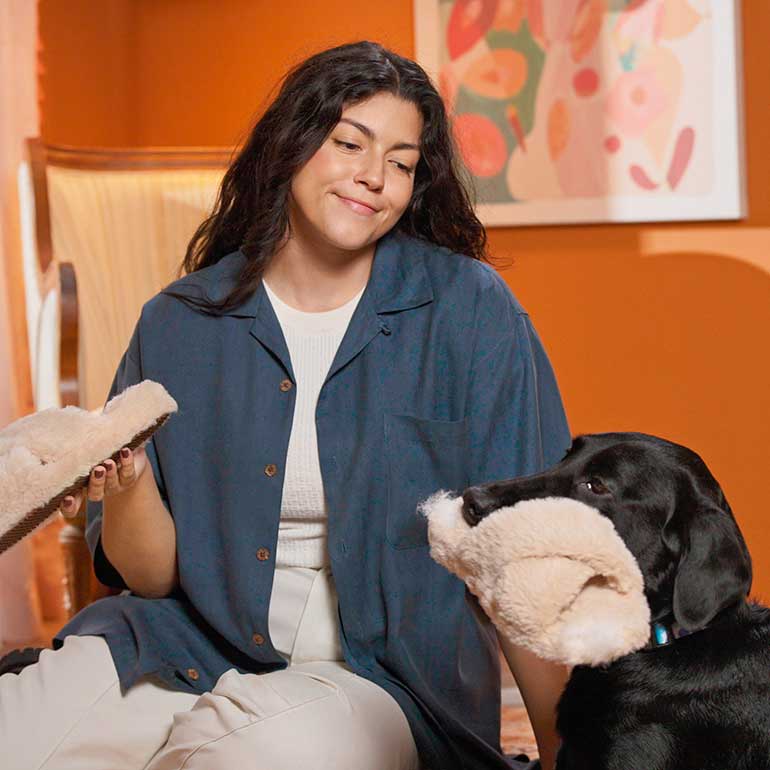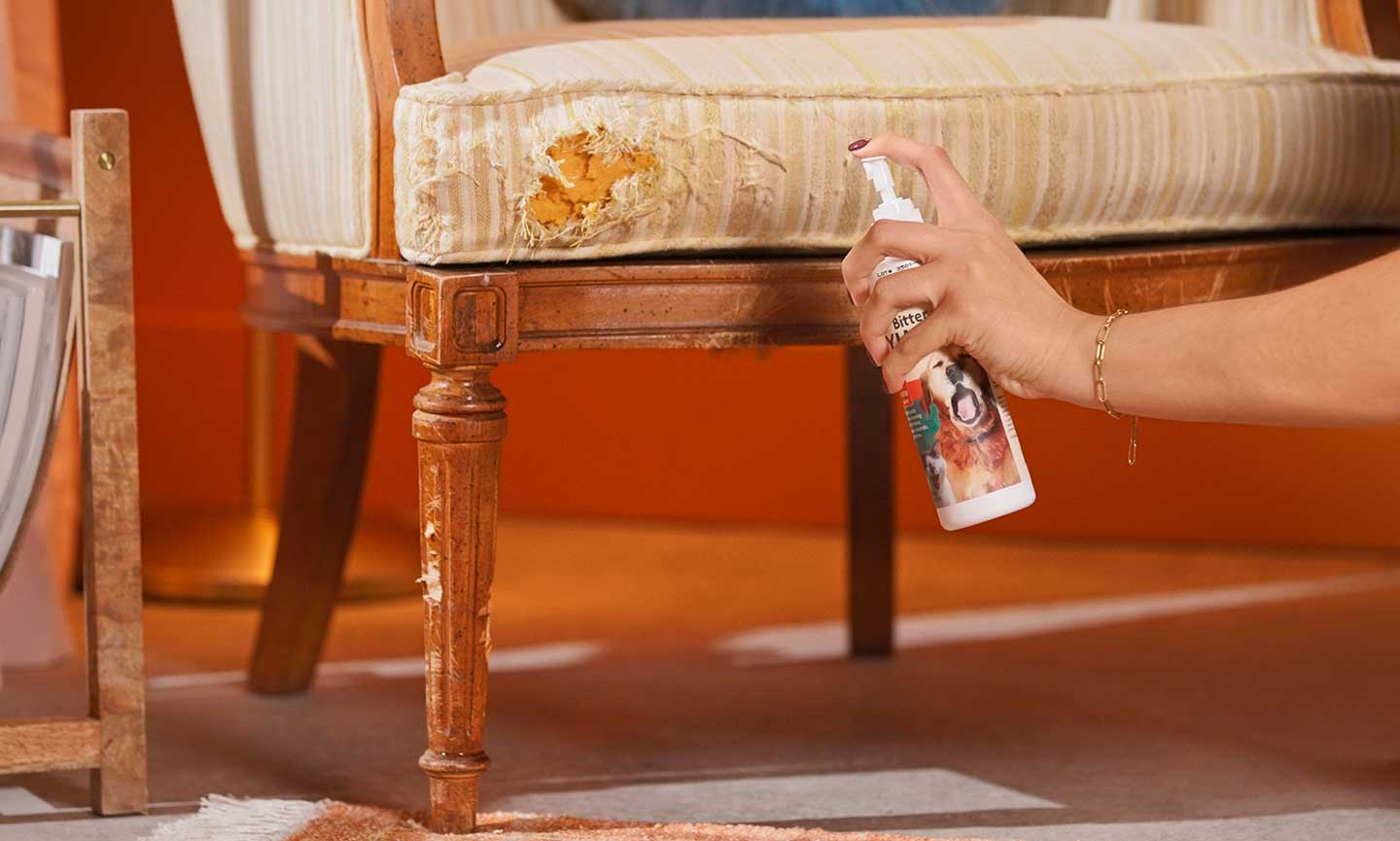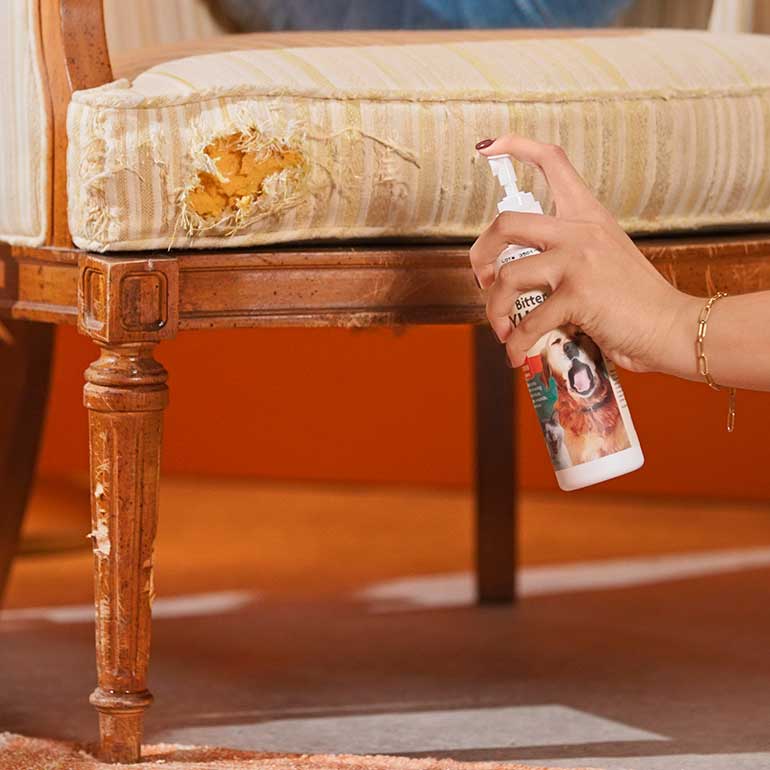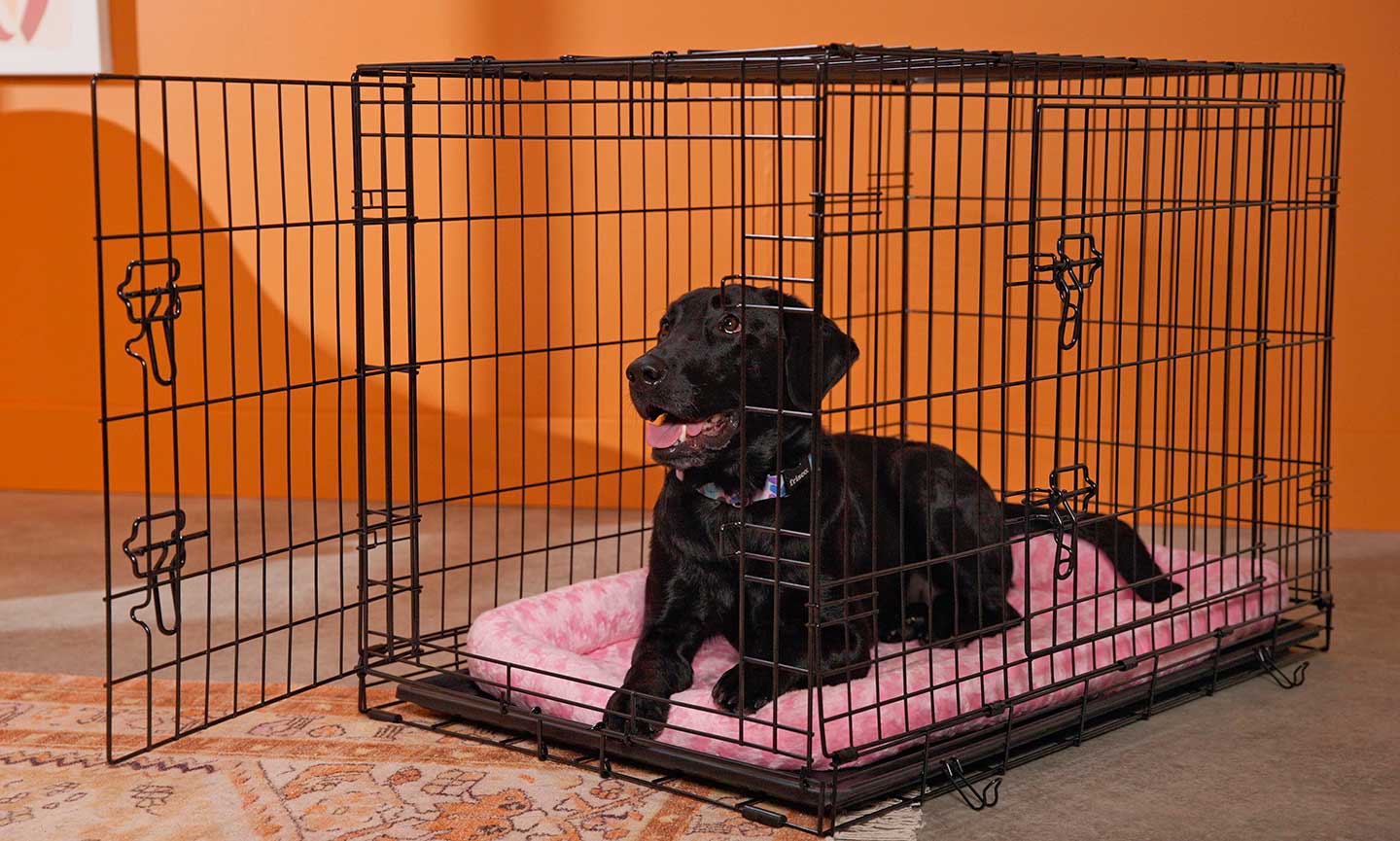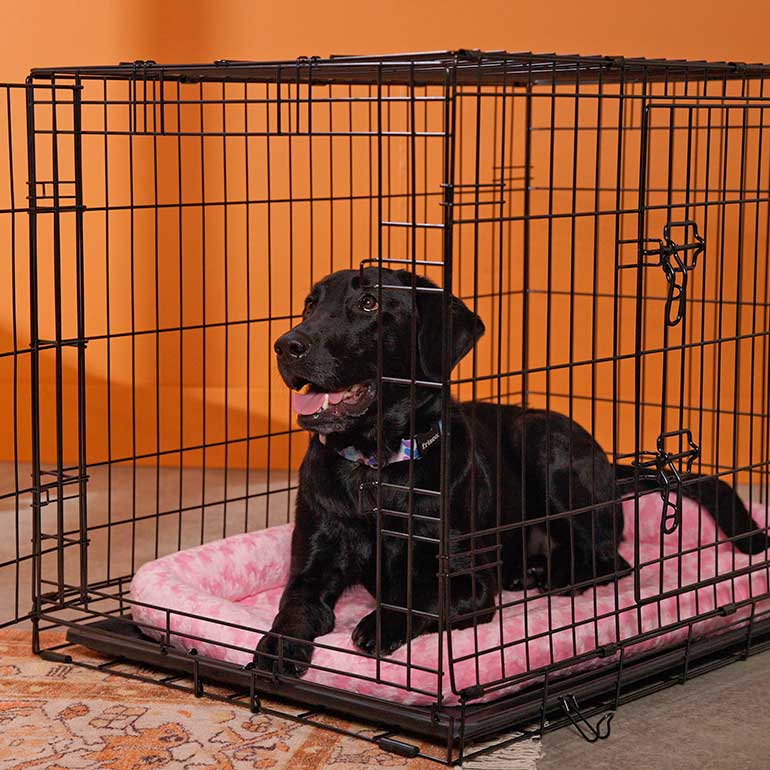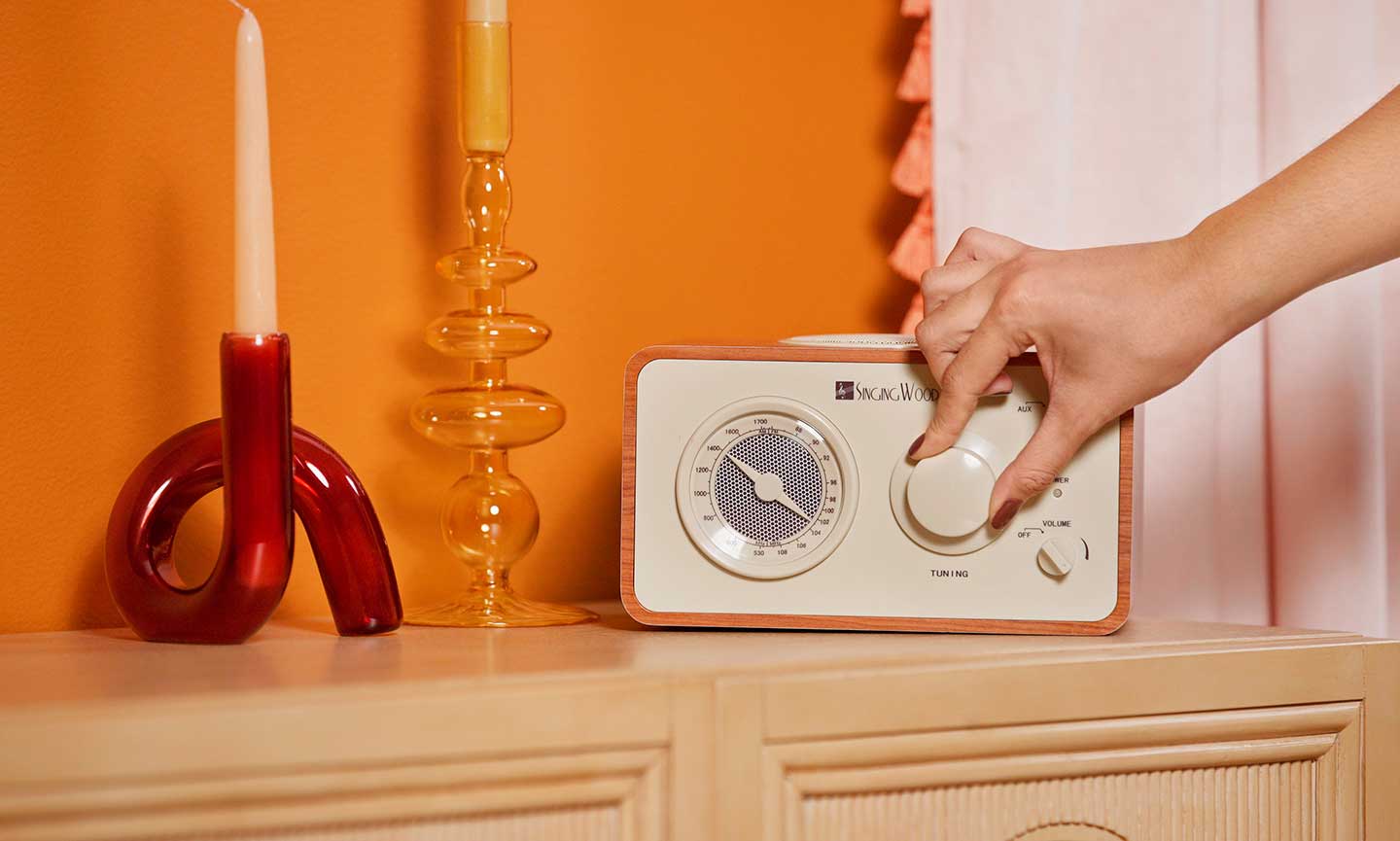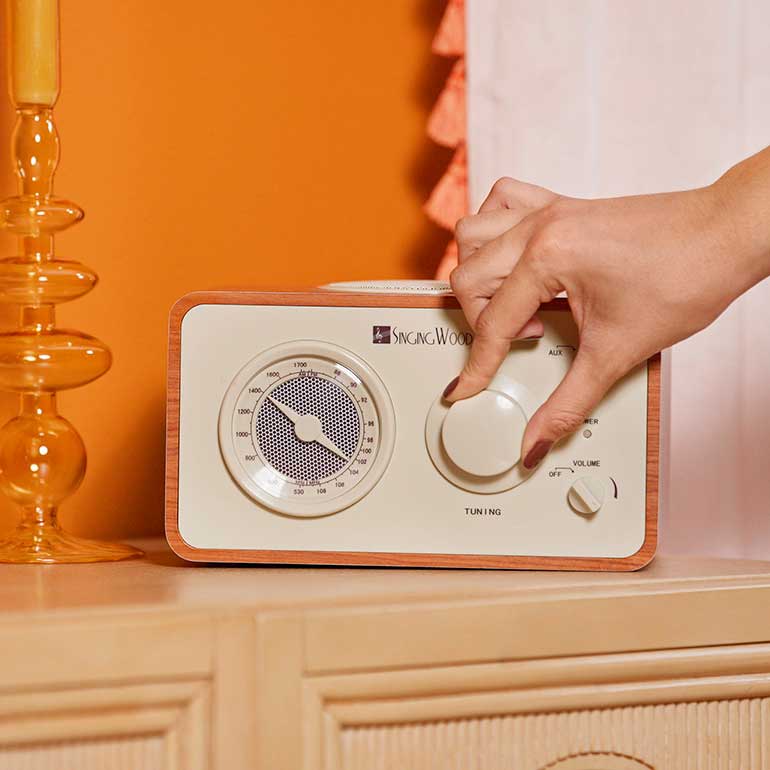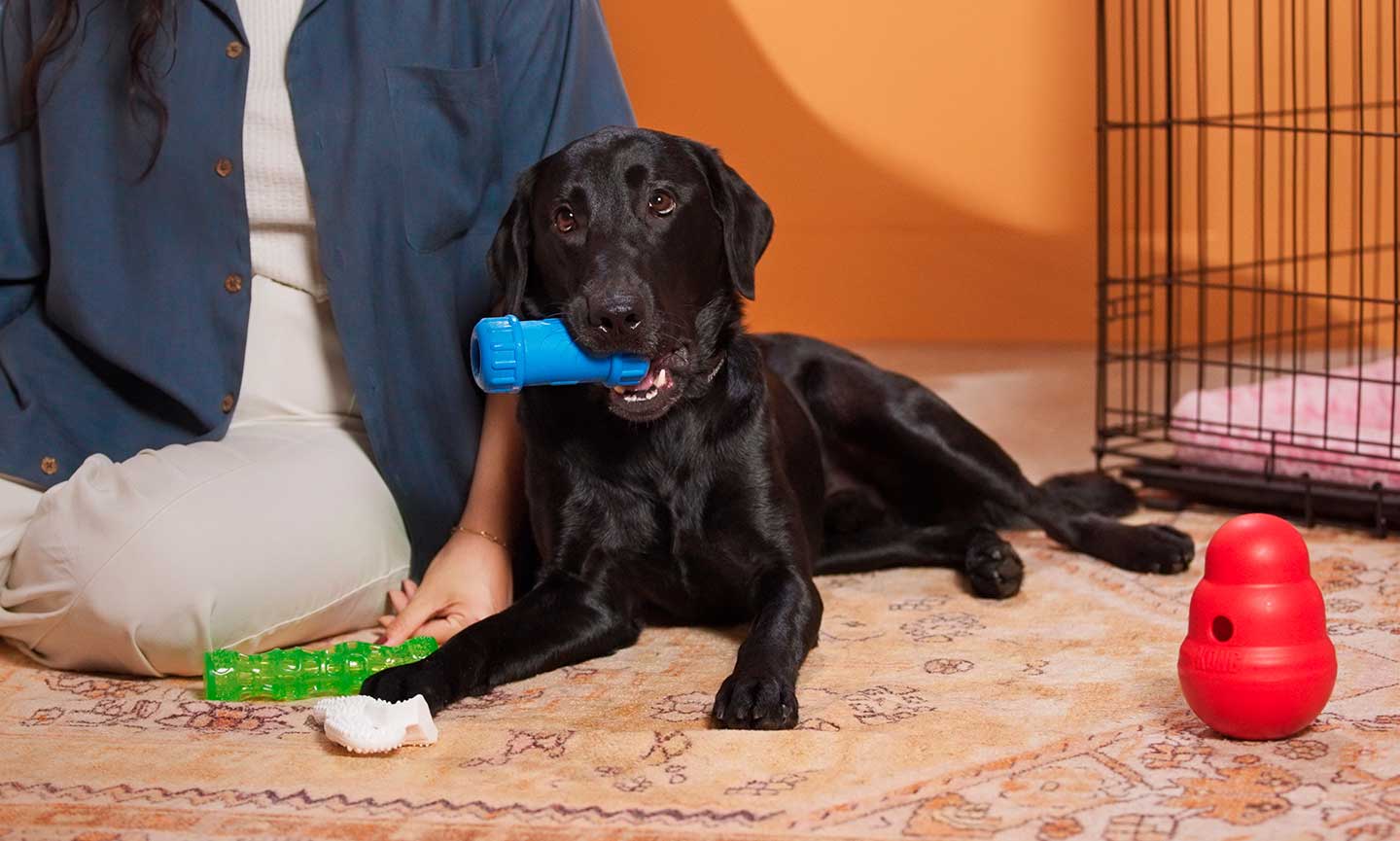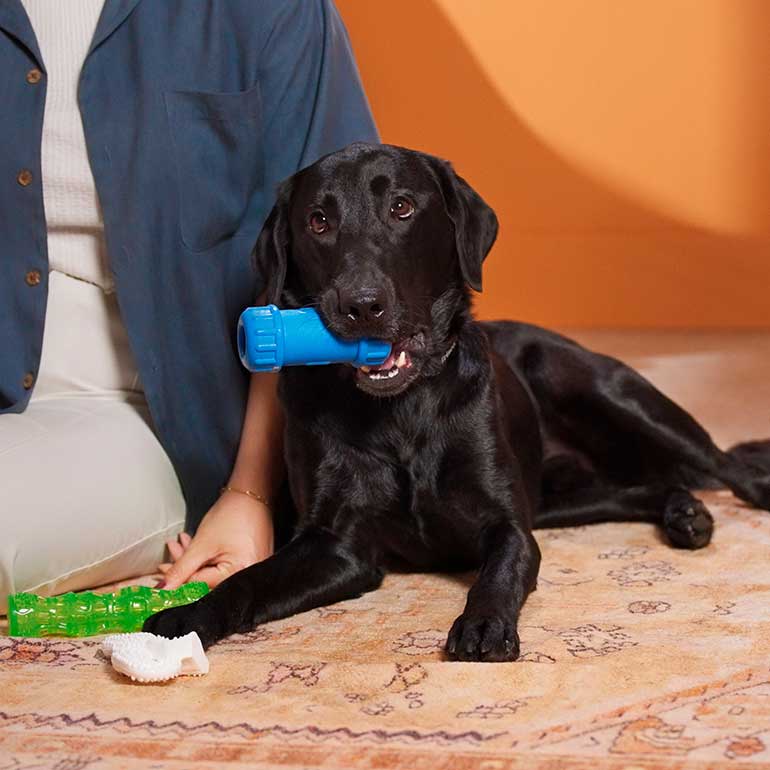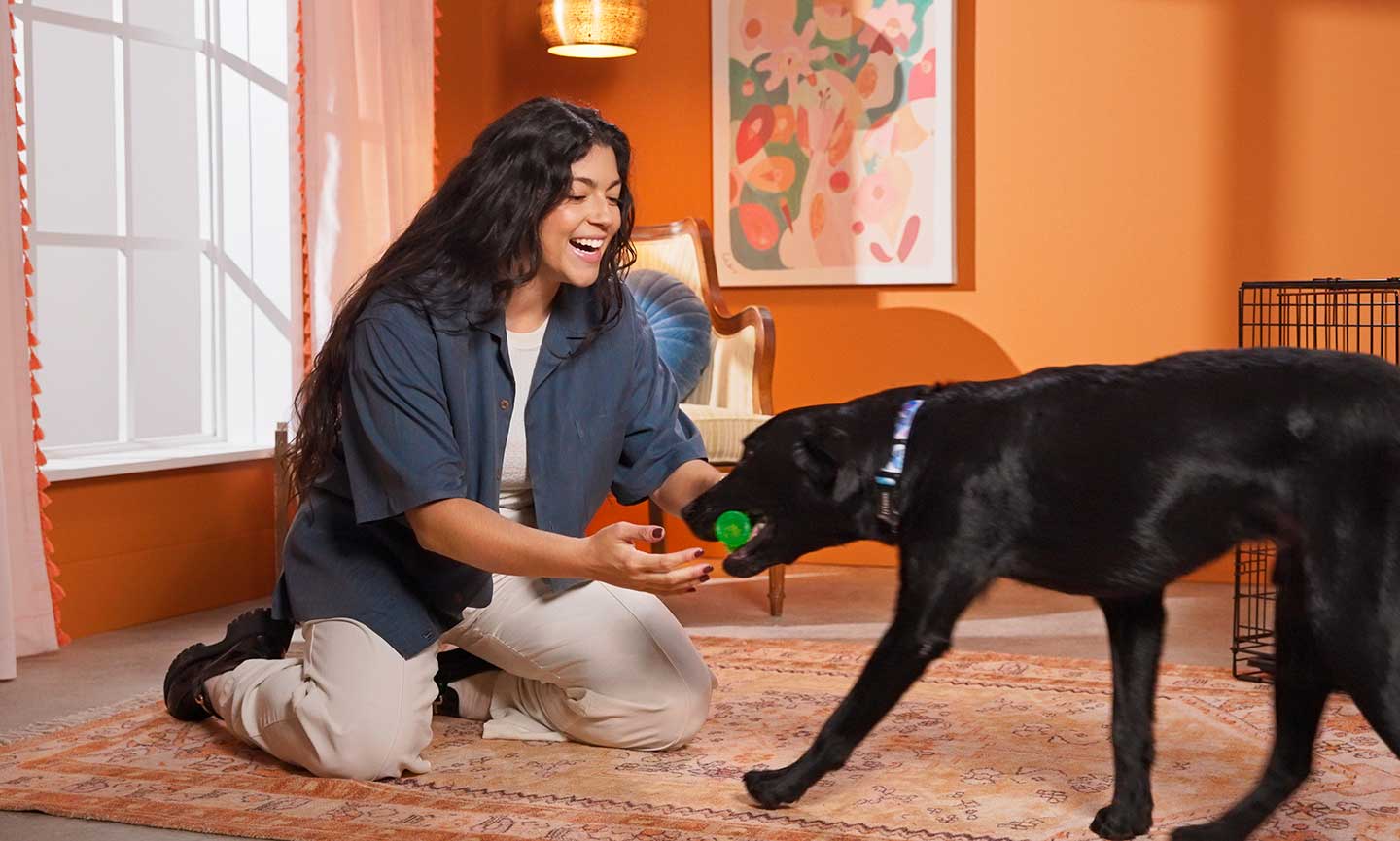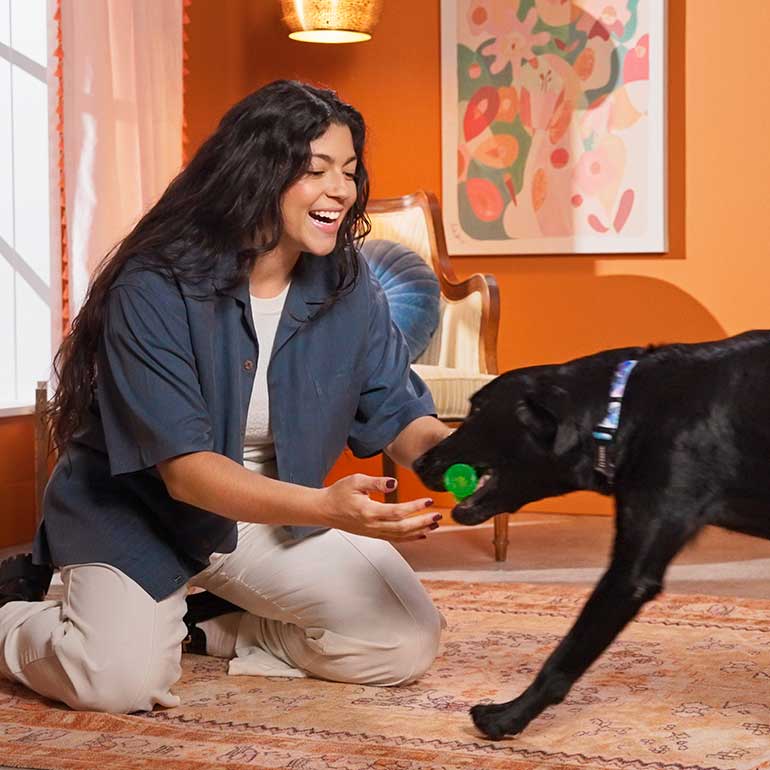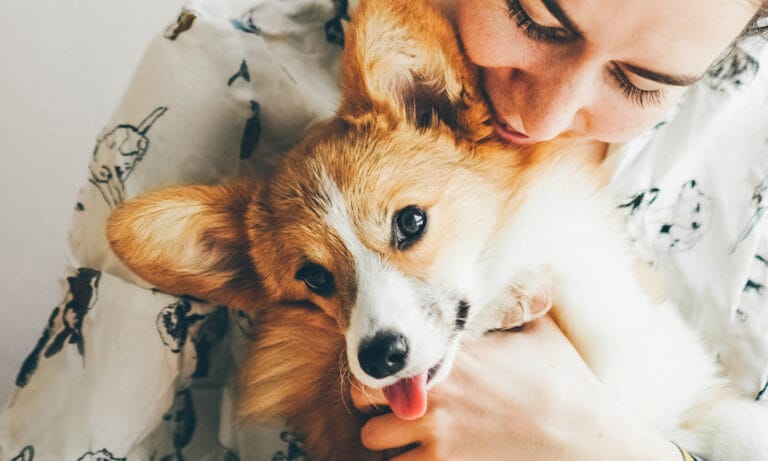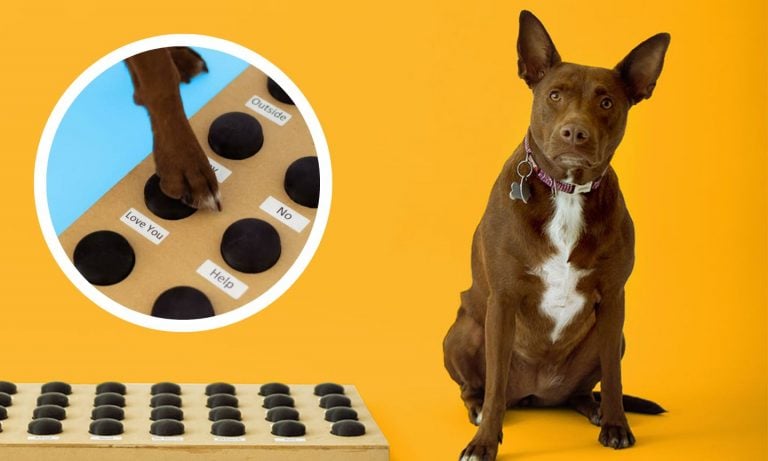If you’re a dog parent, you’ve probably been there: You come home from work to find a prized possession chewed to bits. Maybe it’s your favorite pair of new shoes, or the wooden legs of your furniture, or even the walls of your house. Either way, it’s frustrating, it’s expensive, and it has a name: destructive chewing. So, how do you stop a dog from chewing up your stuff?
Like it or not, dog chewing is a natural behavior. Wolves, dogs’ ancestors, chewed on bones, sticks, and other materials in the wild, and those instincts remain in their domesticated descendants. Essentially, dogs use their mouths like we use our hands: as a tool for exploring and interacting with their world. But that doesn’t mean you need to resign yourself to years of mangled footwear and bite-marked hallways.
Whether you want to get your dog to stop chewing on your furniture, your shoes, or anything else in your home, it’s important to appease this natural instinct. Veterinarians and trainers say the first step to solving your dog’s destructive chewing is understanding what’s driving your dog to chew, then designing a solution to match.
In This Guide
Why Is My Dog Chewing?
Destructive chewing is not a “one size fits all” problem, so determining how to stop a dog from chewing first requires understanding why your dog is doing it. These are the common reasons why dogs chew:
- Natural Development: For dogs, puppy chewing is a natural part of growing up. In this regard, they’re like human babies, who typically go through a stage when they want to stick their mouth on everything as a way of exploring the world.
- Teething: Puppies between 3 to around 8 months of age often have teeth coming in, which can make their gums sore. Gnawing on things helps them deal with the pain.
- Boredom: Dogs who aren’t properly exercised or need more mental stimulation might be driven to find other more inappropriate outlets for their pent-up energy, including inappropriate chewing.
- Stress: Changes to a dog’s normal routine or home environment can lead to destructive chewing. Anything that causes a dog to feel stressed, like renovations or visitors in the home, might encourage a dog to chew in an attempt to vent some of their nervousness.
- Separation Anxiety: Separation anxiety is a stress response that a dog exhibits when they’re away from the person (or people) to whom they’ve bonded. Some dogs become panicked when their parents leave, so they attempt to “break out” of the house, which is why you may come home to find your window frames, doors, or pet gates destroyed.
- Barrier Frustration: Have you ever noticed that your dog behaves differently when they’re behind a fence or gate? That’s classic barrier frustration, aka a dog’s tendency to overreact when there’s a barrier between them and something else. No matter what your dog wants on the other side of that barrier, chewing is a common tactic to try to get there.
- Entertainment: Destructive chewing is frustrating for us, but chewing is fun for dogs. Chewing is a natural canine behavior, and if dogs aren’t given enough appropriate chewing outlets, like rubber, treat-stuffable toys and safe bones and chews, they’ll happily find their own, like your shoes or phone.
- Health Conditions: Chewing is a normal activity for dogs, but in rare cases it may be tied to a more serious medical condition, such as dental issues, oral masses, neurologic disease, stomach or intestinal problems, or a disease resulting in extreme hunger. Your veterinarian can help you rule out health-related causes of destructive chewing.
Pro Tip: Separation anxiety is different from separation frustration, aka a dog’s feelings of discomfort while left alone that manifest in mild chewing. Dogs who exhibit frustration chewing when left alone can usually be managed with a dog-proofed hangout space, like a crate or safe room, while separation anxiety is a complex behavior that usually requires the help of a specialist to treat.
How to Stop a Dog From Chewing on Things
Once your vet has ruled out health and behavioral issues, there are several things you can try when figuring out how to stop a dog from chewing.
1 Dog-Proof Your Place
The first thing the parents of a dog who’s prone to destructive chewing should do is remove the obvious temptations around their home. Keep your shoes, laundry, and other off-limits items out of your dog’s reach.
Dogs can be surprisingly creative when it comes to finding things to chew, so use caution with these common household items:
- Throw rugs
- Pillows
- Furniture legs
- Electrical wires
- TV remotes
- Eyeglasses
- Paper products like mail, magazines, and newspapers
- Trash
- Laundry
- Houseplants
- Cleaning supplies
- Curtains and blinds, including the cords
2 Use Anti-Chew Spray
Dog-safe bitter sprays can be applied to furniture and cabinets to deter problem chewers. These sprays leave an unpleasant taste wherever they’re sprayed, making those surfaces a whole lot less fun for your pup to chew on.
3 Give Your Dog a Crate or Safe Room
Have an area that can’t be puppy-proofed? That’s where their crate can come in handy. If your dog is crate-trained, they can spend time in their crate while you’re unable to watch them.
If your dog’s not crate-trained and you need an immediate solution, try creating a “safe room.” Start with a small, puppy-proofed space such as a bathroom, then add your dog’s favorite bed, a few toys (more on that later), and a pet gate across the doorway. Now your dog has a safe, comfortable oasis where they can hang out when you’re not around.
4 Create a Soothing Environment
If your dog is chewing to burn off extra energy or stress, there are a few steps you can take to help them chill. Adding a plug-in calming diffuser can help to ease stress-chewers by taking the edge of your dog’s feelings of discomfort, but keep in mind that they’re not prescription strength and won’t function as sedatives.
You can also try a white noise machine, or leaving the radio or television on, to create a zen space for your dog while you’re away. The noise can help block out any potentially stressful sounds from outside and provide a calming, consistent background. Studies have shown that dogs prefer soft rock and reggae when it’s time to relax, so crank up the Bob Marley!
5 Provide Plenty of Chew Toys
Dogs that chew need plenty of outlets to satiate their drive. A single toy isn’t enough, so make sure to stock up on a bunch of different types of dog chew toys. These could include:
- Dog-safe bones
- Bully sticks
- Treat-stuffable toys (aka “busy toys”)
- Toys made of durable materials like plastic or tough rubber
Every dog will have unique preferences, so go for what they like best—and remember to switch up their selection of dog toys often so they don’t get bored.
When it comes to busy toys, there’s an endless variety to choose from—but keep in mind that the levels of difficulty vary by toy. It’s best to “train” your dog to love busy toys by offering options that are easy to unpack at first, then gradually transition to toys that require more skill to get to the goodies.
Important note: Remember to supervise your dog when they are first introduced to any new toy, especially those designed for chewing. You’ll want to make sure they can’t splinter or break off pieces that could present a choking hazard.
Pro tip: Slow feeder bowls can turn mealtimes into an energy-burning game and engage your dog’s brain—both of which can help them chill out and chew less. Try serving their dog food in one of these, and they just might have less energy for chewing the rest of the day!
6Get Physical
If keeping your dog busy and giving them access to appropriate toys help, adding more exercise to their routine can amplify those results. In addition to reducing boredom, active playtime provides several other benefits to dogs, from helping with weight loss to promoting relaxation. It also can help deter dog destructive chewing.
So, how much exercise does your dog need? In general, dogs need physical exercise at least two times a day, for at least 20 minutes a day. Some breeds need more exercise than others, so find your breed here to see the recommended amount of physical activity for typical dogs, and ask your veterinarian for advice tailored to your unique pup.
Remember that for your dog, exercise means more than just being let loose in the backyard—you should be participating with them, whether it’s a walk, a game of tug-of-war, playing fetch, or another active interaction.
Pro tip: Dog training can be a great way to exercise both your dog’s body and brain, and the “drop it” command is especially useful for releasing your precious belongings from your dog’s mouth.
Supplies for Dogs That Chew
These items may help your dog overcome their destructive chewing habit (and save your shoes in the process).
- Repellent spray, to deter your dog from the items they shouldn’t chew
- Pet gate, to keep your pup away from off-limits temptations
- Calming diffuser, to help calm your dog (which can reduce chewing behavior)
- White noise sound machine, such as this one from Yogasleep Rohm Travel, another calming solution
- Treat dispensing toys, to keep your pup busy
- Chew toys, to provide appropriate items for their natural chewing instinct
- Puzzle toys, to exercise your dog’s brain and prevent boredom (and the chewing that often accompanies it)
- Tug toys, for active playtime that’ll tire your dog out, leading to less chewing
- A slow feeder dog bowl, that gives your dog a mental challenge at every mealtime, reducing boredom throughout the day (and its associated chewing)
As a certified dog trainer myself, I've tried and tested too many products for problem chewers to count. Here are a few of my favorites:
What Not To Do If Your Dog Is Chewing on Things
Avoid these mistakes to help your pup overcome their destructive chewing habit as quickly as possible.
- Don’t forget to puppy-proof any space where your dog hangs out: When puppy-proofing, think like your dog: Get on the ground and find every possible target.
- Don’t scold your dog for chewing something they weren’t supposed to: Since dogs don’t know what they can and can’t gnaw on, chewed items are a puppy-proofing failure, not a puppy failure.
- Don’t crate a dog who’s showing signs of separation anxiety: Dogs suffering from true separation anxiety might self-injure when crated.
- Don’t provide plush toys as a way to redirect chewing: Stuffed toys are for supervised or joint play and don’t provide enough resistance for chewers. (Plus, many of them aren’t sturdy enough to hold up to chewing and could break open—causing a fluffy mess at best and potentially dangerous health issues if swallowed.)
- Don’t use household items such as old shoes, socks, or dish towels as chew toys: Your dog won’t be able to tell the difference between your “good” shoes that they shouldn’t chew and your “junk” shoes that you’ve regifted to them.
- Don’t chase a dog who has grabbed a forbidden object: Dogs love a game of “catch me if you can,” so instead of chasing after them, run to the treat cabinet and drop a few treats on the ground in front of you. Collect the item when your dog drops it to eat the treats.
- Don’t provide chew items that your dog can break and accidentally ingest: Avoid giving your dog bones that can splinter or break off. These can present a choking hazard, as well as cause gastrointestinal issues if swallowed.
- Don’t only provide one type of toy: Dogs crave variety, so stock up on a range of toys, including different types of busy toys.
- Don’t skimp on the treats in your dog’s treat dispensing toys: Once your dog figures out how to dislodge the treats, make it tougher by packing treats more tightly, or freezing them in the toy. This will keep your dog engaged with the toy longer.
Dog Chewing Troubleshooting
Curbing destructive chewing behavior primarily involves managing a dog’s environment, which means you should start to see improvement as soon as you begin implementing the tips. However, if your dog continues to chew inappropriate household items, ask yourself:
- Is my house completely puppy proofed?
- Have I given my dog a variety of appropriate chew toy options?
- Am I leaving them unattended in areas where they have access to items they shouldn’t?
- Are they getting enough exercise?
Reducing destructive chewing requires a multi-faceted approach.
Seek professional help from a positive reinforcement dog trainer or veterinary behaviorist if your puppy or adult dog is showing aggression when you attempt to take back objects they shouldn’t be chewing, or if your dog is engaging in extreme destructive behavior when left alone (like destroying walls, doors, or windows). These may be signs of separation anxiety, a complex issue that will get worse if not treated properly.
Dog Chewing FAQs
Q:At what age do dogs stop destructive chewing?
A:Puppies usually stop intense exploratory teething once their adult teeth come in at about 6–7 months, but many dogs enjoy chewing throughout their lives.
Q:What dog breeds chew the most?
A:Every breed of dog has the drive to chew. Giving your dog the physical and mental activity they need, whether they're a high-energy Australian Shepherd or a low-key Bulldog, is one of the keys to managing a dog's natural chewing instinct.
Q:What does it mean if my dog is chewing?
A:There are many reasons dogs chew on things. It's natural for puppies to chew items as they explore the world or deal with teething, and adult dogs may chew things due to boredom, stress, or simply because they enjoy it. In rare cases, chewing behavior may be a sign of a health condition.
Q:Do dogs chew when stressed?
A:Stress is one of several reasons dogs may engage in destructive chewing. For some dogs, chewing is a way to release nervous tension.
Q:What repels dogs from chewing?
A:
Proper puppy proofing and bitter sprays can reduce a dog’s desire and ability to chew inappropriate items.
All dogs chew, but that doesn’t mean your possessions have to be constantly at risk. With the right combination of training and toys, your pup can live in harmony with you—and with your stuff.
All dogs chew, but that doesn’t mean your possessions have to be constantly at risk. With the right combination of training and toys, your pup can live in harmony with you—and with your stuff.
Expert input provided by Robin Bennett, CPDT-KA, a certified professional dog trainer in Stafford, Virginia; Irith Bloom, CPDT-KSA, CDBC, a certified animal trainer and certified dog behavior consultant who owns and is director of training at The Sophisticated Dog in West Los Angeles, California; Dr. Roger Mugford, animal psychologist and founder of The Animal Behaviour Centre in Surrey, England; Zenithson Ng, DVM, DABVP (canine/feline), a clinical assistant professor of small animal clinical sciences at the University of Tennessee College of Veterinary Medicine in Knoxville, Tennessee; and the author, Victoria Schade, CPDT-KA, an Atlanta-based dog trainer.
This content was medically reviewed by Teresa Manucy, DVM, a Chewy veterinarian.
Share:
